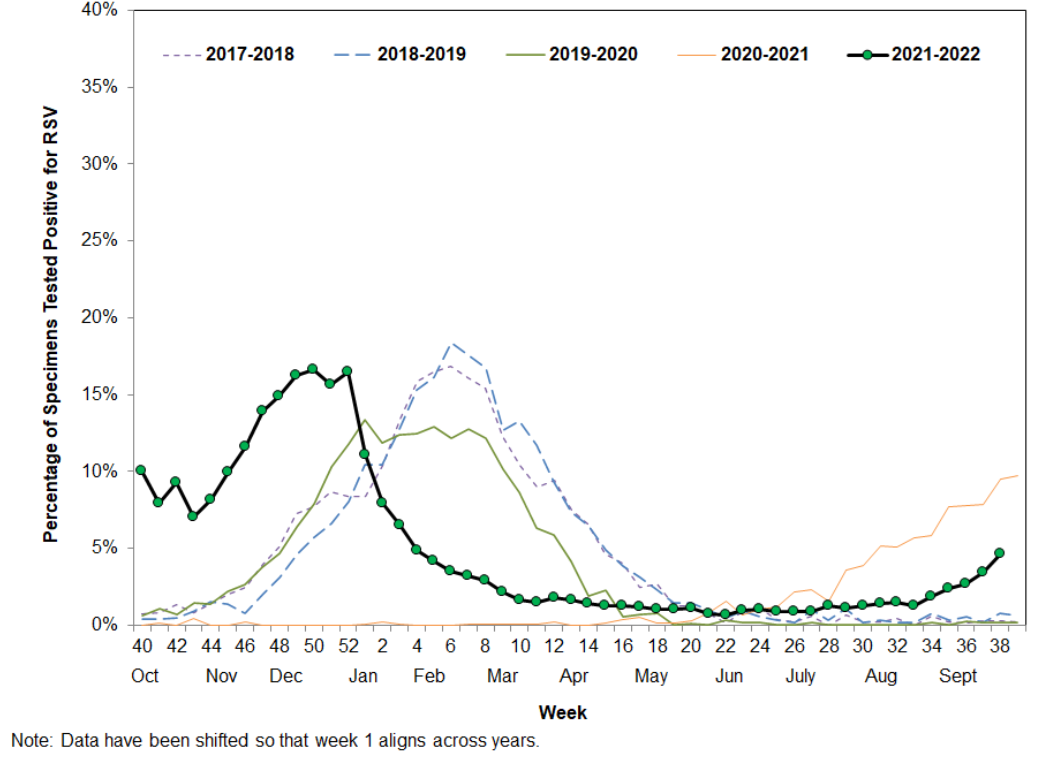Key messages
- Respiratory syncytial virus (RSV) activity is increasing in California.
- Consider testing for additional respiratory pathogens besides SARS-CoV-2, including RSV.
- Administer prophylactic palivizumab to high-risk infants and young children per AAP guidance.
- Encourage parents and caregivers to keep young children with acute respiratory illnesses out of childcare, even if they have tested negative for SARS-CoV-2.
- Discourage health care personnel, childcare providers, and staff of long-term care facilities from working while acutely ill, even if they have tested negative for SARS-CoV-2.
- Encourage patients to receive influenza and COVID-19 vaccines this fall to protect themselves against those respiratory viruses this season.
Summary
Respiratory syncytial virus (RSV) is the most common cause of bronchiolitis and pneumonia in infants and a cause of severe disease in adults older than age 65 years. Although RSV typically circulates during the winter, during the week ending September 24, 2022, 4.7% of respiratory illness specimens from surveillance in California tested positive for RSV, a level usually not seen until late November [Figure]. It is unknown how long this increased activity will continue.
Persons with RSV infection typically have fever, cough, wheezing and runny nose. Infants and young children may be irritable, lethargic, feed poorly and have no fever. Consider testing for RSV in patients with respiratory symptoms, especially those who test negative for COVID-19.
Persons with acute respiratory symptoms should stay home while ill, especially those who work in health care, childcare, or long-term care, even if they have tested negative for SARS-CoV-2.
While there are no vaccines yet to prevent RSV infections, CDPH strongly recommends seasonal
influenza vaccine and COVID-19 vaccine to help protect persons 6 months and older.
For more information
Figure: Percentage of RSV detections at clinical sentinel laboratories — California, 2017–2022
